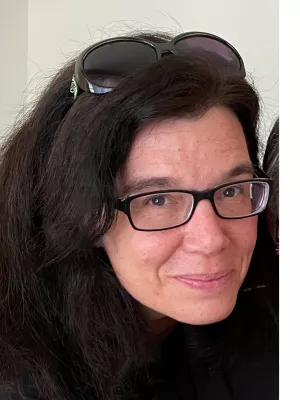
Christine Wamsler
Professor, Docent, appointed Excellent Teaching Practitioner (ETP)

The complexity of multiple trauma understandings across disciplines – the COVID-19 pandemic as a ‘case’
Author
Summary, in English
Trauma is a highly topical subject of growing relevance in different contexts and scientific traditions that deal with societal challenges and transformation. At the same time, knowledge on different understandings of trauma is still scarce and scattered across disciplines. Against this background, we present and discuss the complexity of trauma understandings from five selected disciplinary perspectives and its significance at individual, group, and societal level, using COVID-19 as an illustrative case. The article shows how trauma is understood from multiple perspectives by referring to different conditions and phenomena. At the same time, there are certain similarities across all disciplinary angles. Trauma refers to first-hand individual or collective experiences of a crisis and/or a sense of external and internal disruption. Trauma often has severe consequences, but it simultaneously entails the possibility of transformation. The latter does not only relate to the individual, it can also involve groups, systems, and society at large. The COVID-19 case illuminates the complexity of trauma understandings and associated transformation, pointing to trauma as a floating signifier, which is largely open to different attributions of meaning depending on discipline and perspective. We conclude with a call for more integrated and nuanced inter- and transdisciplinary understandings of trauma to account for the concept’s complexity and its significance at individual, collective, intergenerational, and global levels.
Department/s
- Health-promoting Complex Interventions
- LUCSUS (Lund University Centre for Sustainability Studies)
- Department of Strategic Communication
- Integrative Health Research
Publishing year
2023
Language
English
Pages
1-14
Publication/Series
Nordic Journal of Social Research
Volume
14
Issue
1
Document type
Journal article
Publisher
Universitetsforlaget AS
Topic
- Ethnology
Status
Published
Research group
- Health-promoting Complex Interventions
- Integrative Health Research
ISBN/ISSN/Other
- ISSN: 1892-2783